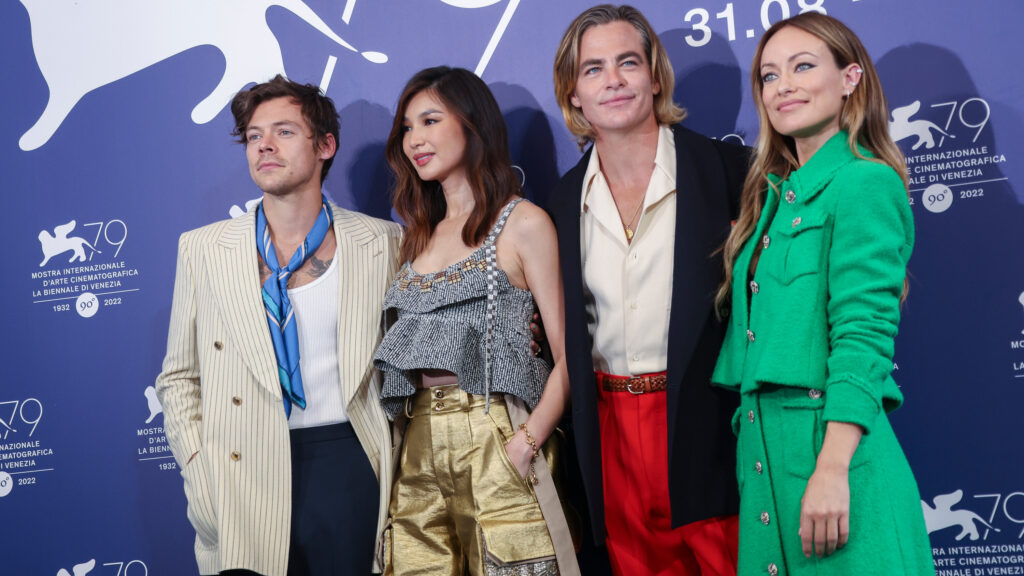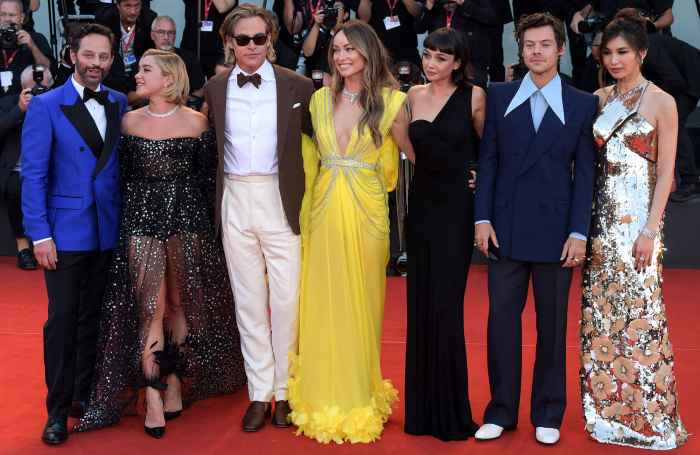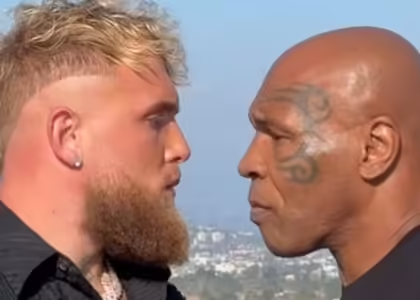After a disastrous publicity tour that has turned into a whole TV season’s worth of water-cooler drama, fretting about the movie Don’t Worry Darling has turned into a weeks-long activity for the pop culturally aware. This weekend saw the release of the movie, a psychological thriller starring Florence Pugh and unknown pop artist Harry Styles. The verdict was favourable; estimates place the opening weekend revenue at $19.2 million. Now that it’s available, we can follow the studio’s and director Olivia Wilde’s advice and evaluate the picture on the basis of its own merits rather than rumours about real-life people (spoilers ahead).
The issue is that it’s impossible to separate the movie from the drama occurring off-screen. There is a glaring disparity between what we are promised is happening and what we actually witness in both the PR for Don’t Worry Darling and the movie itself. In the case of the movie, which Wilde has labelled as a vehicle for feminine pleasure and a feminist thriller, there is a clear contrast between the film’s stunning visual accomplishment and its cheesy, meaningless narrative.
Despite Wilde’s protestations that the “endless tabloid gossip” about on-set conflict and problems with Pugh is internet nonsense and sexist double standards, something was obviously wrong on the PR front (“Am I envious of my male colleagues in the way that they seem to be able to live their lives without as much judgement? Yes, I do,” she admitted to Kelly Clarkson last week. “I think, ‘Man, that guy must be cool. Every step he makes is being applauded by everyone (“). Pugh, a major release’s lead actress, avoided practically all promotional obligations with the exception of the Venice Film Festival, where she failed to mention Wilde (if you’re interested, there are a tonne of TikToks/explainers breaking down the Venice premiere like the Zapruder movie).
I could go on and on about the press tour that was uncommon and the off-screen drama, some of which (“spitgate”) are merely filler. However, a large portion of it is the expected reaction to viewing anything that contradicts the dominant narrative. The gap arouses curiosity and annoyance. People will fill it with rumours that can be both justifiably curious and misogynistic, extra, and judgmental.
Sadly, the contrast between what the movie appears to be trying to accomplish (or what Wilde claims it is accomplishing) and what it actually accomplishes has the opposite impact. The surprising denouement (spoilers, once more) is that Pugh’s Alice has been imprisoned in a 1950s simulation because Styles’s Jack, her internet-poisoned boyfriend, wants her all to himself.
But it disables rather than activates the brain. It would take a lack of critical thinking on your part to find it shocking or to not quickly see holes in it (What did the plane mean? Did nobody have a feeling of their own past? Why did Gemma Chan’s persona turn on Frank, played by Chris Pine? Pugh is absolutely believable throughout, but why did Alice, who is supposed to be intelligent, disclose her scepticism to Bunny played by Wilde rather than Margaret played by Kiki Layne?) And it would take a lot of lack of thought to interpret it as a feminist remark.
The movie ties together some fundamental concepts—that some males view women’s job as a danger, yearn for obedience, and idolise a return to oppressive 1950s gender norms—without any consistency or characterization. It extensively mimics other, superior films, such The Truman Show and The Matrix, as well as Jordan Peele’s Get Out’s zeitgeist-inspired politics and sunken place pacification. Many of its narrative points are similar to those in The Stepford Wives (the 1975 film, a thriller with dark satirical roots): the menacing 50s housewife aesthetic, the spiky best friend, the women asking their husbands “what do you suppose they do up there?”, a prohibited men’s club, etc. With a piece of furniture, the two main characters struck their husbands who had been revealed to be their captors.
The Stepford Wives similarly extended misogyny to absurd lengths—the men, who were neither as charming or attractive as the DWD husbands, replaced the women with robots—but at least the plot’s twist made sense.
Wilde deserves praise for his work as a filmmaker. She gathered a group of master craftspeople, including Matthew Libatique’s beautiful cinematography, Arianne Phillips’ bright costumes, and John Powell’s thundering score, which adds more suspense than any of Alice’s unexpected findings. Wilde shows a talent for portraying the destabilised brain, as seen in the drug trip scene in her debut movie Booksmart. Alice’s flashbacks, memory jolts, and hallucinations, which frequently involve dance moves a la Busby Berkeley, are visually compelling even when they serve the purpose of being completely obvious.

However, Don’t Worry Darling is essentially lacking of tension despite all the techniques. A portion of that is attributable to Wilde’s extensive plot spoilers in the press cycle. She has compared it to The Truman Show, revealed ahead of time that Chris Pine’s character is based on Jordan Peterson, admitted to Variety that she did extensive research for the movie on the “disenfranchised world of white men on the internet” via 4chan, and has even given Maggie Gyllenhaal a lesson on incels. The fact that the movie literally says nothing about feminism, the internet, or society other than to state that misogyny is a helluva trip is part of the reason for this.
It makes me think of Promising Young Woman, a movie that was also celebrated for its feminism and radical anger but had a twist that doubled down on how awful some men can be. That movie, which received a wide release in late 2020, followed Carey Mulligan’s portrayal of a beautiful, white female lead who was singularly obsessed with exacting revenge for sexual assault. Both movies have stunning visuals and a female lead whose acting transcends the plot; however, when they first came out, they seemed out of date, as if they were reacting to the #MeToo movement’s early days in 2017, when the revelation of a few exceptionally bad men was a revelation in and of itself. Or, like in the case of Don’t Worry Darling, when worries about incels (involuntary celibates) from the internet increased following the 2018 Toronto van attack.









